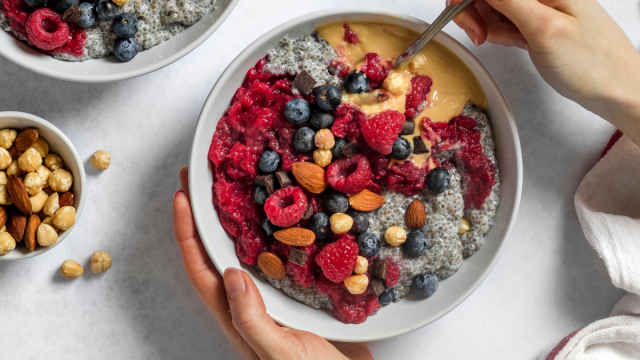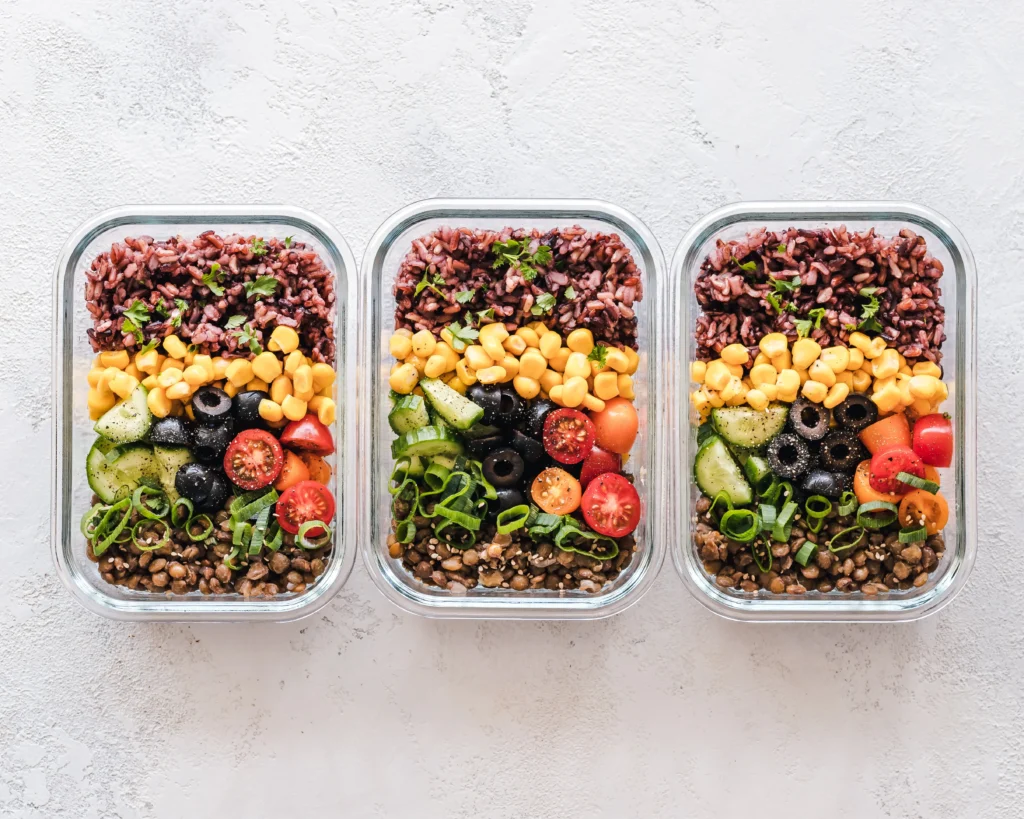Gut health has become one of the most talked-about topics in the wellness world, and for good reason. Your digestive system isn’t just about breaking down food; it’s home to trillions of bacteria, fungi, and microorganisms that directly affect immunity, mood, energy, and even weight management. This system, called the gut microbiome, plays a vital role in overall wellbeing.
Food is one of the strongest tools for supporting a healthy gut. While supplements can help, the foundation of gut health is built in the kitchen. By choosing recipes that balance fibre, probiotics, prebiotics, and nutrients, you can promote the growth of good bacteria and reduce digestive discomfort.
This article explores gut health friendly recipes that are both delicious and nourishing. From breakfasts to dinners, snacks to drinks, you’ll discover meals packed with flavour and function. You’ll also find tips on meal planning, lifestyle changes, and key ingredients that can transform your digestion naturally.
What is Gut Health?
The gut microbiome is a community of microorganisms living in your digestive tract. When balanced, these microbes aid in nutrient absorption, fight harmful pathogens, and regulate immunity. When disrupted—due to poor diet, stress, or medication digestive issues such as bloating, indigestion, or irritable bowel syndrome (IBS) can occur.
A diet rich in gut-friendly recipes offers multiple benefits:
- Supports smoother digestion.
- Reduces inflammation.
- Boosts immune function.
- Enhances nutrient absorption.
- Improves energy and mental clarity.
By learning which foods feed beneficial bacteria, you can enjoy better gut function and long-term health.
Key Ingredients for Gut Health
A healthy gut depends greatly on the food choices you make every day. The human digestive tract is home to trillions of microorganisms, collectively known as the gut microbiome, and these tiny organisms thrive or weaken depending on what you eat. When your diet consistently includes gut-friendly ingredients, you provide the right balance of fuel and support for beneficial bacteria, while keeping harmful bacteria under control. Below are the most important categories of foods that should form the foundation of gut health friendly recipes.
1. Fibre-Rich Foods
Fibre is often referred to as the unsung hero of digestive health. It helps regulate bowel movements, prevents constipation, and serves as the main fuel source for beneficial bacteria in the colon. When these bacteria break down fibre, they produce short-chain fatty acids (SCFAs) that reduce inflammation, strengthen the intestinal lining, and support immune function. Excellent fibre sources include whole grains such as oats, quinoa, and brown rice, as well as legumes like beans, lentils, and chickpeas. Fruits such as apples, pears, and berries, alongside vegetables like spinach, broccoli, and carrots, are equally vital. By ensuring a colourful variety of fibre-rich foods in your diet, you not only feed your gut but also balance energy and satiety throughout the day.
2. Fermented Foods
Fermentation is a natural process that enhances food with probiotics live, beneficial bacteria that directly contribute to a healthier gut. Foods such as yoghurt, kefir, sauerkraut, kimchi, and miso are rich in these probiotics. Regularly consuming fermented foods helps restore microbial diversity in the digestive system, especially after antibiotic use or a period of poor diet. They also improve digestion of lactose, aid in nutrient absorption, and enhance immune response. Fermented foods are versatile and can be added to meals in simple ways for example, topping avocado toast with sauerkraut or adding kimchi to a rice bowl.
3. Prebiotic Foods
Prebiotics are non-digestible fibres that serve as food for probiotics. They don’t contain live bacteria themselves, but they create the perfect environment for good bacteria to flourish. Common prebiotic-rich foods include garlic, onions, leeks, bananas, asparagus, and Jerusalem artichokes. By including prebiotics in your meals, you help ensure that probiotics survive, multiply, and perform their beneficial functions in the gut. Pairing prebiotics with probiotics sometimes referred to as synbiotics is an excellent strategy for long-term gut balance. For example, eating a banana smoothie made with yoghurt provides both prebiotics and probiotics in one meal.
P4. robiotic Sources
While fermented foods naturally supply probiotics, certain drinks and dairy products are particularly rich sources. Yoghurt with live cultures, kombucha, kefir, and even some types of soft cheeses deliver a steady supply of good bacteria. These probiotics help restore balance in the gut, especially during times of stress, illness, or antibiotic use. Incorporating probiotics daily can reduce bloating, enhance digestion, and improve nutrient absorption, making them a cornerstone of gut-friendly diets.
5. Herbal Teas and Hydration
Good hydration is often overlooked but is fundamental for healthy digestion. Adequate fluid intake keeps stools soft, promotes regular bowel movements, and supports nutrient transport. Herbal teas, such as peppermint, ginger, and green tea, offer extra digestive benefits beyond hydration. Peppermint tea relaxes intestinal muscles, ginger reduces nausea and inflammation, and green tea provides antioxidants that protect gut cells. Drinking a mix of water and herbal teas throughout the day helps maintain a balanced gut environment while keeping the digestive system calm and functional.
Bringing It All Together
The combination of fibre, fermented foods, prebiotics, probiotics, and proper hydration creates the ideal foundation for gut health. Each category plays a different but complementary role, making it essential to include all of them in your weekly diet. Whether it’s starting your morning with overnight oats and yoghurt, adding kimchi to your lunch bowl, or sipping ginger tea in the evening, these small choices collectively transform digestive wellbeing. By consistently incorporating these ingredients into recipes, you nourish your microbiome and support long-term health.
Gut-Friendly Ingredients and Their Benefits
| Ingredient | Type | Gut Health Benefit |
|---|---|---|
| Yoghurt (live cultures) | Probiotic | Restores healthy gut bacteria |
| Garlic & Onion | Prebiotic | Feed beneficial microbes |
| Oats & Chia Seeds | Fibre | Support regular digestion |
| Sauerkraut | Fermented | Reduces inflammation |
| Ginger Tea | Herbal | Soothes bloating and nausea |
Breakfast Recipes for Gut Health

A healthy gut starts with the first meal of the day. Here are simple yet powerful breakfast recipes:
1. Overnight Oats with Chia Seeds and Berries
- Ingredients: Rolled oats, chia seeds, almond milk, blueberries, yoghurt.
- Why it works: Oats provide fibre, chia supports digestion, and berries deliver antioxidants.
2. Probiotic-Rich Smoothie
- Ingredients: Kefir, spinach, flaxseeds, banana, and a touch of ginger.
- Why it works: Kefir introduces probiotics, while flaxseeds provide omega-3s and fibre.
3. Avocado Toast with Sauerkraut
- Ingredients: Wholegrain bread, mashed avocado, sauerkraut, and pumpkin seeds.
- Why it works: A perfect balance of fibre, healthy fats, and probiotics.
4. Vegetable Omelette with Spinach and Onions
- Ingredients: Eggs, spinach, onions, mushrooms.
- Why it works: Onions act as prebiotics, and eggs add protein for balance.
Lunch Recipes for Gut Health
Lunch is a great opportunity to build variety into your diet with gut-friendly meals.
1. Quinoa Chickpea Salad
- Ingredients: Quinoa, chickpeas, cucumber, olive oil, mint.
- Why it works: Protein-rich chickpeas support gut bacteria, while quinoa provides fibre.
2. Grilled Salmon with Brown Rice and Broccoli
- Ingredients: Salmon fillet, brown rice, steamed broccoli, lemon dressing.
- Why it works: Salmon offers omega-3s to reduce inflammation, paired with fibre-packed grains.
3. Buddha Bowl with Kimchi
- Ingredients: Brown rice, chickpeas, kimchi, spinach, tahini dressing.
- Why it works: Kimchi is a probiotic powerhouse; spinach and chickpeas fuel digestion.
4. Lentil and Turmeric Soup
- Ingredients: Red lentils, garlic, turmeric, onions, carrots.
- Why it works: Lentils are high in prebiotic fibre; turmeric fights inflammation.
Dinner Recipes for Gut Health
Dinner should be light yet nourishing to avoid overnight digestive stress.
1. Roasted Chicken with Sweet Potatoes and Spinach
- Ingredients: Chicken breast, olive oil, sweet potatoes, spinach.
- Why it works: Lean protein supports repair; sweet potatoes offer prebiotic fibre.
2. Miso Soup with Tofu and Seaweed
- Ingredients: Miso paste, tofu, seaweed, spring onions.
- Why it works: Miso contains probiotics; seaweed provides minerals that aid gut balance.
3. Stir-Fried Veggies with Tempeh
- Ingredients: Tempeh, broccoli, peppers, sesame oil, ginger.
- Why it works: Fermented tempeh delivers probiotics, and ginger soothes digestion.
4. Baked Cod with Mediterranean Herbs
- Ingredients: Cod fillet, olive oil, oregano, zucchini, tomatoes.
- Why it works: A light meal rich in protein, antioxidants, and healthy fats.
Snacks & Drinks for Gut Health
Healthy snacking plays an important role in keeping your digestive system balanced throughout the day. Rather than reaching for processed foods that can disrupt gut bacteria, choosing nutrient-rich snacks and drinks helps stabilise energy, improve digestion, and feed beneficial microbes. Simple, wholesome options can be prepared quickly while still offering significant benefits to gut health.
1. Greek Yoghurt Parfait
A Greek yoghurt parfait layered with granola, nuts, and a drizzle of honey makes an excellent gut-friendly snack. The yoghurt provides probiotics that restore healthy gut bacteria, while granola and nuts add fibre and crunch to support regular digestion. Honey offers natural sweetness and prebiotic properties, making this a balanced snack that is both nourishing and satisfying.
2. Kombucha or Kefir Drinks
For a refreshing and probiotic-rich option, kombucha and kefir are excellent choices. These fermented drinks introduce live bacteria into the digestive system, promoting microbial diversity and improving nutrient absorption. Kombucha also contains antioxidants, while kefir offers a higher concentration of probiotics than most dairy yoghurts, making them ideal between meals to refresh and revitalise the gut.
3. Hummus with Carrots and Celery
Hummus made from chickpeas is a fibre-rich, protein-packed dip that pairs perfectly with raw vegetables such as carrots and celery. Chickpeas provide prebiotic fibre, while crunchy vegetables add vitamins and minerals that aid digestion. This combination is light, filling, and easy to prepare, making it a practical everyday snack.
4. Fermented Pickles & Trail Mix
Fermented pickles contain probiotics that support gut health, while a homemade trail mix with nuts, seeds, and dried fruits provides fibre, healthy fats, and antioxidants. Together, they create a crunchy, flavourful, and nutrient-dense snack that satisfies cravings while nourishing your digestive system.
By choosing these snacks and drinks regularly, you give your gut the balance it needs to function at its best.
Meal Planning for Gut-Friendly Living

Creating a gut-friendly lifestyle requires consistency.
- Plan meals around fibre, probiotics, and prebiotics.
- Rotate fermented foods daily (e.g., yoghurt for breakfast, kimchi for lunch).
- Include seasonal vegetables for variety.
- Cook in bulk to avoid processed, packaged alternatives.
Lifestyle Tips Alongside Gut-Friendly Recipes
While gut-friendly recipes form the foundation of digestive wellness, lifestyle choices play an equally important role. The health of the gut is influenced not only by what you eat but also by how you live each day. By adopting supportive habits alongside a nutrient-rich diet, you can create a thriving environment for beneficial bacteria and enjoy better overall wellbeing.
1. Exercise for Gut Health
Moderate physical activity encourages gut microbiota diversity, which is linked to improved digestion and stronger immunity. Activities such as brisk walking, yoga, or cycling stimulate bowel movements, reduce bloating, and enhance circulation. Unlike extreme workouts that may stress the body, regular moderate exercise provides a steady boost to gut function.
2. Stress Management
Chronic stress can negatively impact the gut-brain connection, leading to issues such as indigestion, IBS, and increased inflammation. Mindfulness practices like meditation, deep breathing, or even short breaks for relaxation help calm the nervous system and reduce gut-related stress responses. Making stress management part of daily life supports long-term digestive health.
3. Hydration
Staying well-hydrated is essential for smooth digestion. Water keeps stools soft, prevents constipation, and aids in nutrient absorption. Herbal teas such as ginger, peppermint, and chamomile go a step further by soothing the digestive tract and reducing discomfort. Aim to sip water consistently throughout the day rather than in large amounts at once.
4. Limiting Harmful Foods
To protect the gut microbiome, it’s important to limit foods that disrupt bacterial balance. Processed sugars, fried foods, and excess alcohol can feed harmful bacteria and increase inflammation. Replacing these with whole, fibre-rich, and fermented foods ensures your gut receives the nourishment it needs.
10 Quick Gut-Friendly Swaps
- Replace soda → Kombucha.
- White bread → Wholegrain bread.
- Sugary cereal → Overnight oats.
- Crisps → Carrot sticks with hummus.
- Ice cream → Yoghurt with berries.
- Coffee overload → Green tea.
- Fried chicken → Grilled salmon.
- Pasta → Quinoa or lentil pasta.
- Cheese dip → Guacamole.
- Sugary drinks → Infused water with lemon and mint.
Foods That Hurt vs. Help Gut Health
| Harmful Foods | Why Harmful | Gut-Friendly Alternative |
|---|---|---|
| Processed sugar | Feeds bad bacteria | Berries, honey, dates |
| Fried fast foods | Inflammatory fats | Grilled salmon, avocado |
| Artificial sweeteners | Disrupt microbiome | Stevia, raw honey |
| Excess alcohol | Damages gut lining | Herbal teas, kombucha |
Must Read:
Conclusion:
Your gut is central to your health, influencing digestion, immunity, and even mental wellbeing. Traditional diets high in processed foods often damage gut balance, but by choosing gut health friendly recipes, you can restore harmony naturally. From probiotic-rich breakfasts to fibre-filled dinners, these recipes prove that food can be both delicious and healing.
By making simple swaps and planning meals around whole, fermented, and fibre-rich ingredients, you create a gut-friendly lifestyle that supports long-term wellness. The key is consistency nourishing your microbiome daily ensures lasting energy, clearer skin, better digestion, and a stronger immune system.
Start with one recipe today, and let your gut guide you toward a healthier tomorrow.
